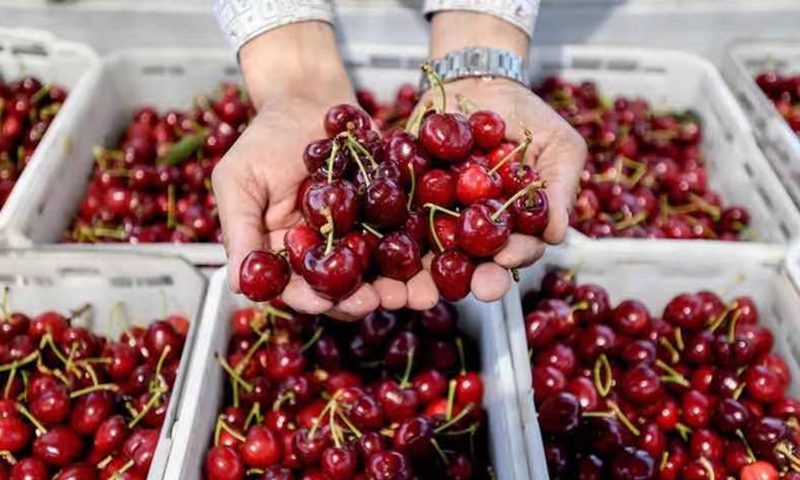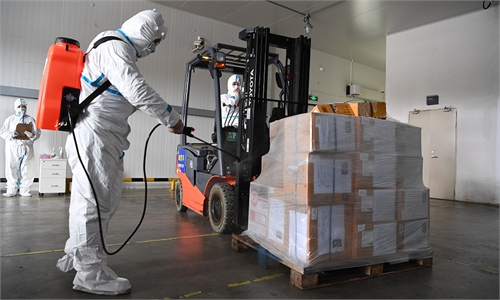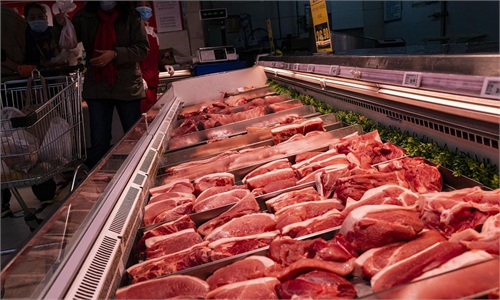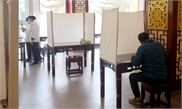
Photo: Xinhua
The Chilean Embassy has denied that a batch of imported cherries found to be COVID-19 positive in China originated from Chile, saying that it has not received any official communication from Chinese Customs.Inner packaging of a batch of imported cherries was found to be COVID-19 positive in Wuxi, East China's Jiangsu Province, according to media reports. It is not yet clear what the source country is, but the result has raised much discussion among Chinese consumers over the origin of the fruit on Chinese social media.
In relation to the recent news shared on different social networks and media publications in China, the Embassy of Chile in China said it has, to this date, not received any official communication from the General Administration of Customs of China or any other official Chinese authority certifying that the finding referred to the news is a product imported from Chile.
"Therefore, as this situation has not happened, we deny that these cherries are from Chile," said the Embassy in a statement sent to the Global Times on Sunday.
The statement also said that the Chilean export industry has hiked up a series of sanitary surveillance programs throughout the entire production process to prevent and reduce the risk of infection.
According to the Embassy, around 130 million kilos of cherries have been exported from Chile to more than 400 million consumers in China during this season.
Most of the cherries sold in China come from Chile and Australia.
In the 2019-2020 season, Chilean exports were over 150 times Australia's and pricing was lower, according to data from Australian Trade and Investment Commission.
Australia exported 1,487 tons of cherries to China in 2019. This represents a drop of 7 percent year-on-year from the 2018 debut season, media reported.
The positive COVID-19 results on imported food do not necessarily mean that they are infectious. It depends on the level of the viral load and whether the contaminated virus is active, Feng Zijian, deputy director of China Center for Disease Control and Prevention, said while addressing consumers concerns.
Global Times



